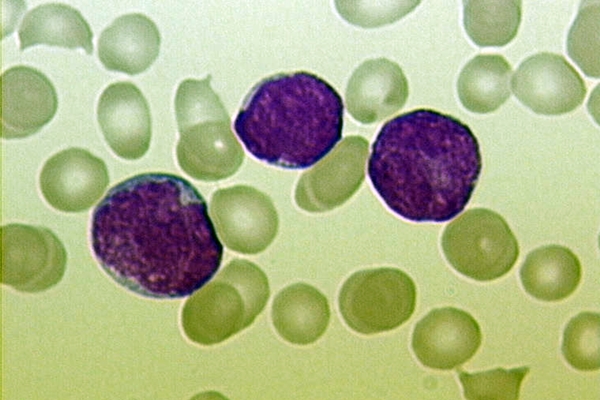5 December 2016. First results from an international clinical trial of engineered immune system cells to treat leukemia in children show high rates of remission, but also many severe adverse effects. Findings of the trial, sponsored by the pharmaceutical company Novartis, were presented on 3 December at a meeting of American Society of Hematology in San Diego.
A team led by Stephan Grupp, director of cancer immunotherapy at Children’s Hospital of Philadelphia, is testing an experimental treatment for B-cell acute lymphoblastic leukemia in children and young adults that modifies an individual’s own T-cells, white blood cells from the immune system, to fight the leukemia. As reported in Science & Enterprise, Novartis licensed the technology behind the treatments in 2012 from University of Pennsylvania, which conducted the original research. Children’s Hospital of Philadelphia is affiliated with UPenn’s medical school.
Acute lymphoblastic leukemia is a cancer of blood and bone marrow that progresses quickly, making an overabundance of immature lymphocytes, a type of white blood cell. It is also the most common type of cancer among children, although it can affect adults as well.
The therapy, code-named CTL019, starts with a sample of an individual’s blood cells and separates out T-cells, white blood cells used by the immune system to fight invading pathogens, then reprograms the T-cells with genetic engineering to find and kill cancer cells. The engineered T-cells become hunter cells, containing a protein known as chimeric antigen receptor that acts like an antibody.
These modified chimeric antigen receptor or CAR T-cells are infused back into the patient, seeking out and binding to a protein called CD19 found on the surface of B cells — another type of white blood cell — associated with several types of blood-related cancers. Among the properties programmed into CTL019 is the ability of hunter cells to quickly multiply and accumulate to battle the cancer cells.
The clinical trial is the first test of the CAR-T technology on an international scale. The intermediate-stage study is recruiting 95 participants, age 3 to 23 with relapsed or unresponsive acute lymphoblastic leukemia at 26 sites in the U.S., Canada, Europe, Australia, and Japan. Grupp spoke at the same organization’s meeting last year on results from a similar trial testing CTL019 at a single site in the U.S.
The researchers reported on 29 of the first 57 enrolled participants in the study receiving treatments at 25 of the sites, as of March 2016. At that time, 15 of the 57 individuals were still receiving treatments, 5 patients suffered adverse effects or died from causes unrelated to the treatments, and in 3 cases the T-cell production process failed. Of the remaining 34 participants, 29 received a single infusion of the engineered T-cells and were followed for a full 28 days.
Among these 29 individuals, 24 or 83 percent reported a complete remission without any residual disease or at most an incomplete recovery to a normal blood count. Of the remainder, 1 individual showed signs of a complete response but did not complete the assessment, 2 did not respond to treatments, and 2 participants died: 1 from progression of the disease and 1 from a brain hemorrhage.
Large percentages of participants reported adverse effects from the treatments, particularly cytokine release syndrome that occurs when enzymes are emitted from cells targeted by treatments, causing flu-like symptoms such as fevers, nausea, and muscle pain, but also neurological symptoms including hallucinations and delirium. Nearly all participants (82%) experienced some form of cytokine release syndrome, with nearly half (45%) at severe levels requiring hospitalization. Other adverse effects experienced by 1 in 5 or more participants include low white blood counts, low blood pressure, and neuropsychiatric events including confusion, delirium, and seizures.
Of almost equal interest to the study team was the experience of carrying out the complex procedures on a global scale. The Children’s Hospital and UPenn team trained the clinical staff at the 25 participating trial sites. although T-cell modification and culturing were performed in a single lab.
Novartis considers the results encouraging enough to plan for submission to FDA to review CTL019 in early 2017 and European Medicines Agency later in the year.
Read more:
- Stem Cell Therapy Shows Early Results with Multiple Myeloma
- Engineered T-Cell Trial Halted After Participant Dies
- Clinic Opens for Engineered T-Cell Cancer Therapies
- Trial Shows Engineered T-Cells Can Stop Lymphoma
- Leukemia T-Cell Trial Stopped After Patients’ Deaths
* * *


 RSS - Posts
RSS - Posts
[…] High Leukemia Remissions Reported for Engineered T-Cells […]